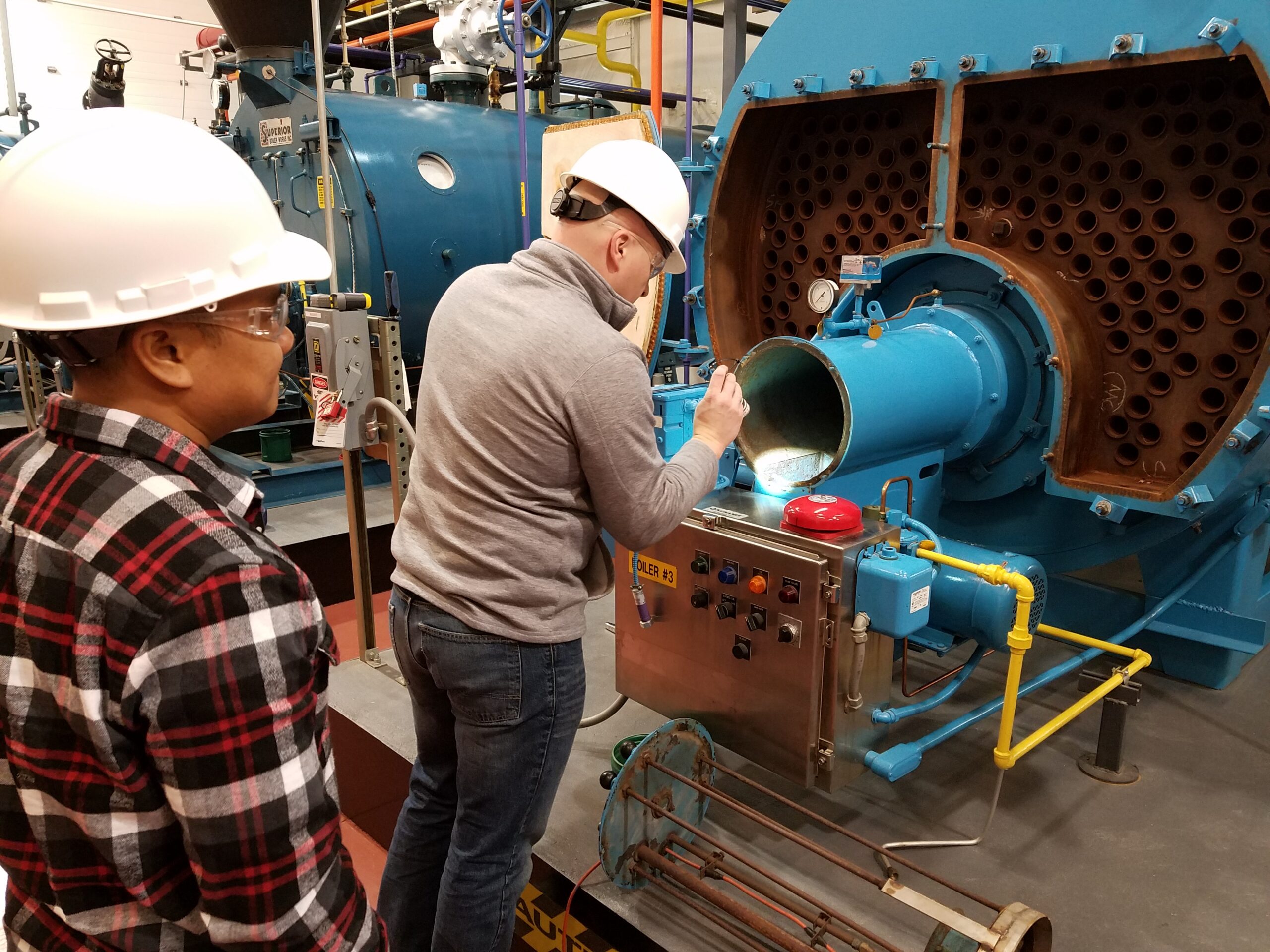Table of Contents
Boilers are a fundamental component of most homes in colder regions. They help keep the house warm and comfortable during winter months. But what exactly is a boiler, and how does it work? In this post, we will cover everything you need to know about boilers. From what it is and its benefits to choosing the right type for your home and tips for maintaining your boiler system. We will also discuss different types of boilers available in the market so that you can make an informed decision when selecting one for your home. So, whether you’re a first-time homeowner or looking to replace an old boiler system, this essential guide has got you covered!

We invest in and generate Power, Refrigeration and Steam. We free up clients’ capital and shoulder operational risk for them to grow their business. Better business, better world.
What is a Boiler?
Boilers are heating systems that utilize fossil fuels or electricity to heat water or generate steam. They work by transferring the heat produced through combustion to the water. Boilers can be used for both heating and hot water supply, and high-efficiency boilers with AFUE ratings of 90% or higher can help reduce energy costs. Condensing boilers further increase efficiency by extracting additional heat through flue gas condensation.
Benefits of Boilers
Boilers provide consistent and efficient heating throughout the home. Modern boilers boast high efficiency, reducing fuel consumption and saving money. They offer precise temperature control, ensuring comfort in every room. Boilers can be combined with radiant floor heating, amplifying both comfort and energy efficiency. With a longer lifespan compared to other heating systems, boilers are a reliable and durable choice for homeowners.
How to Choose the Right Boiler for Your Home
When choosing the right boiler for your home, there are several factors to consider. First, determine your heating needs and the size of your home to select the appropriate boiler capacity. Next, consider the type of fuel available, such as oil-fired boilers, gas boilers, or electric boilers. Look for boilers with an Energy Star certification for high efficiency. Additionally, evaluate the cost of installation, maintenance, and fuel prices. It’s always a good idea to consult with a professional who can assess your home’s heating requirements and recommend the right boiler for you.
Types of Boilers
Combi boilers, suitable for smaller homes, provide both heating and hot water in a compact unit. System boilers offer better water pressure but require a separate hot water storage tank. Conventional boilers, also known as regular or traditional boilers, need both a hot water storage tank and a cold water storage tank. Biomass boilers utilize renewable energy sources like wood pellets or logs. Electric boilers are ideal for homes without access to gas or oil supplies.
Tips for Maintaining Your Boiler System
To ensure optimum performance, it is important to schedule regular maintenance and annual inspections. Keep the boiler and surrounding area clean to avoid any debris that could affect its efficiency. Regularly bleeding the radiators helps remove trapped air, improving heating efficiency. Monitoring the boiler’s pressure and temperature levels is essential to identify any abnormalities. Additionally, consider installing a carbon monoxide detector to detect potential leaks.
How does a boiler work to heat a home or building?
A boiler efficiently heats water using gas or oil as a fuel source. The heated water is then circulated through a system of pipes, radiators, or underfloor heating, releasing heat and warming up the space. The boiler adjusts the heat output based on the thermostat to maintain a comfortable temperature.
How often should a boiler be serviced and maintained to ensure optimal performance and safety?
To ensure optimal performance and safety, it is recommended to service and maintain your boiler at least once a year. Regular maintenance helps identify potential issues before they become major problems, ensuring your boiler functions safely and efficiently. Neglecting maintenance can lead to increased energy costs, decreased efficiency, and safety hazards.
What factors should I consider when choosing a new boiler for my home?
When choosing a new boiler for your home, there are several important factors to consider. These include the size of your home and the number of people living in it, the energy efficiency ratings of the boiler, your preferred type of fuel (gas, oil, or electric), and seeking guidance from a professional installer to determine the best option for your specific needs.
To wrap up, boilers play a crucial role in providing warmth and comfort to our homes. They offer numerous benefits like energy efficiency, cost savings, and reliable heating. When choosing a boiler, consider factors such as size, fuel type, and efficiency ratings to ensure it meets your specific needs. Regular maintenance is essential to keep your boiler running smoothly and efficiently. Additionally, familiarize yourself with different types of boilers, including combi, system, and conventional boilers, to make an informed decision. By following these tips and taking proper care of your boiler, you can enjoy a warm and cozy home throughout the year.
What maintenance tasks should be performed regularly on a boiler?
Regular maintenance tasks for boilers include checking and cleaning water filters, maintaining the recommended pressure level, scheduling annual inspections by professionals, and bleeding radiators to ensure even heating. Regular maintenance is crucial for the efficient functioning of your boiler.
How do I know if my boiler needs repair or replacement?
Signs of a problematic boiler include strange noises, leaks, and reduced efficiency. An inspection by a professional can assess the extent of the issues. Frequent repairs may indicate it’s more cost-effective to replace the boiler. Regular maintenance helps prevent major problems.
What factors should be considered when choosing a new boiler?
When choosing a new boiler, it’s important to consider factors such as the size of your home, the number of people living there, and the energy efficiency rating of different models. Additionally, think about your hot water needs and budget, comparing prices from various brands.

